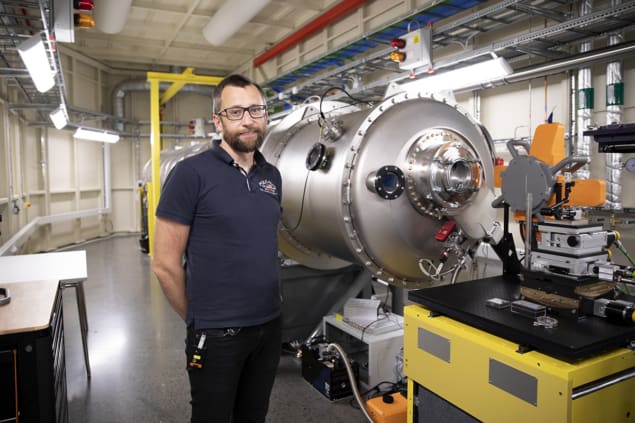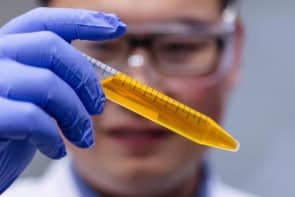Kim Nygård manages the ForMAX beamline at Sweden’s MAX IV synchrotron laboratory in Lund, where his team helps scientists from academia and industry to develop sustainable products based on materials from the forest

What skills do you use every day in your job?
For the past six years, I’ve been responsible for the construction and operation of the ForMAX beamline at the MAX IV Laboratory in Lund, Sweden. We provide a state-of-the-art instrument for the structural characterization of materials using X-ray scattering and imaging, with a special focus on the development of advanced materials from renewable forest resources.
My tasks are diverse. I lead a small team that maintains the instrument, further develops it, and supports external users from academia and industry during their experiments. Some of these tasks are technical, such as working together with our automation and motion-control engineers to implement new hardware updates for example, or with our software engineers to enhance our control and data acquisition systems.
Other tasks are scientific in nature – such as developing new X-ray methodologies and carrying out experiments with external scientists or the in-house team. And these are all alongside budgetary responsibilities and outreach with our user communities. During the ForMAX construction phase, my remit also included conceptual design of the instrument, procurement and project management.
If I were to identify one specific skill that I use daily, I guess it would be the ability to learn “on the fly”. I appreciate my physics education – it gives me the technical basis for my current role – but the diversity of tasks at MAX IV is such that I am always encountering new problems and learning new skills.
What do you like best and least about your job?
There are lots of things I really enjoy about my job. For starters, I get to work with, and learn from, colleagues with a wide range of expertise on a daily basis – whether that’s vacuum technicians and mechanical engineers at the laboratory, or external researchers studying, for example, novel cellulose-based materials or degradable bone implants.
On a personal level, I’ve always enjoyed developing new experiments, something I can continue to some extent within my current role. At the same time, I am now involved in R&D that matters at a wider societal and economic level. Earlier in my career, I studied fluids under spatial confinement. This is an interesting soft-matter problem and I think we contributed to significant advances in the field – although the impact of this small-scale basic research was rather limited. If I can now support, say, applied X-ray studies to develop sustainable food packaging, the impact of my contribution is amplified greatly.
Less good, and probably common to a lot of jobs, is the fact that I can rarely set aside a full day to focus exclusively on the challenging task at hand.
What do you know today that you wish you knew when you were starting out in your career?
I’d like to highlight two things. First, the importance of soft skills. For example, more than a hundred colleagues were directly involved in the construction of the ForMAX instrument. Communication is key. The better I am at building relationships with these colleagues, the smoother the project progresses and the more fun it is.

How Treesearch is studying the secrets of forest materials with synchrotron science
Second, I’ve always been open to new challenges, having worked in physics, chemistry and nanotechnology labs as well as large-scale synchrotron facilities like MAX IV. I’ve been happy with this path, but often wondered if I should have “settled down” earlier. With hindsight, though, I should have worried less and enjoyed the ride more, trusting that things will turn out fine as long as I continue to develop my skills and am ready when an opportunity appears.



